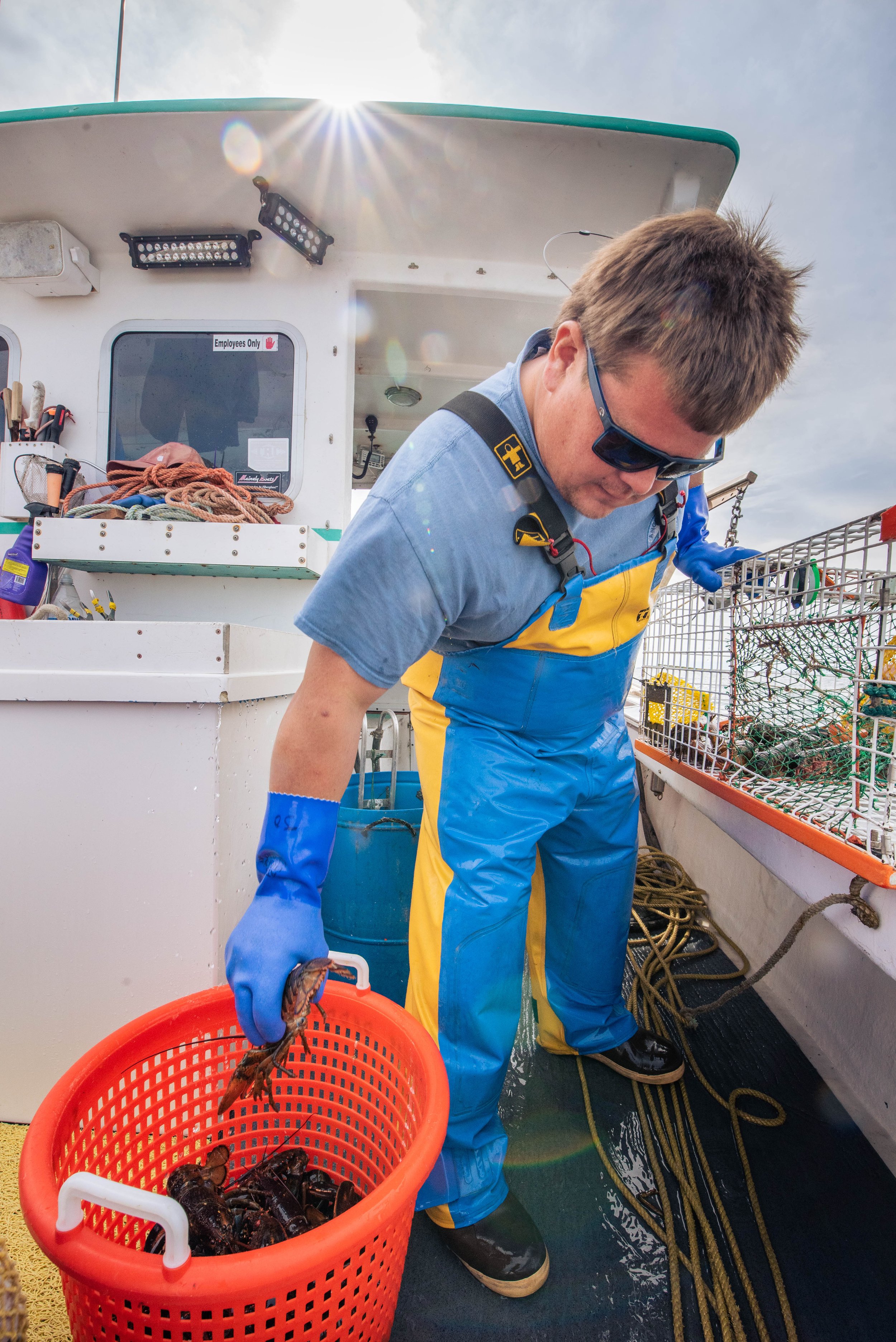American Lobster Initiative
The Sea Grant American Lobster Initiative, funded by the National Oceanic and Atmospheric Administration’s National Sea Grant College Program, is addressing critical knowledge gaps about American lobster and its iconic fishery in a dynamic and changing environment. The initiative, which began in 2019, supports both scientific research and a regional Sea Grant extension program in the Northeast U.S.
Together, the research and extension components of this initiative will develop and share new knowledge and understanding with industry stakeholders and resource managers from Maine to New York.
Goal: Increase the American lobster industry’s resilience to the biological, economic, and social impacts of ecosystem change in the Gulf of Maine and Georges Bank, and southern New England.
Regional Lobster Extension Program:
Seven Northeast Sea Grant Programs have developed a collaborative approach to supporting a regionally coordinated American lobster extension initiative, which will complement and enhance the American Lobster Research Program. Maine Sea Grant will provide leadership and overall coordination for the effort, and New Hampshire, MIT, Woods Hole, Rhode Island, Connecticut, and New York Sea Grant programs will lead locally-relevant components that contribute to the regional effort and be engaged in regional activities. Learn more about the Regional Lobster Extension Program.
American Lobster Research Program:
To date, the National Sea Grant Office has funded 22 research projects aimed at understanding the physical and chemical changes affecting American lobster in the Gulf of Maine. Projects were chosen through a competitive process that included review by subject matter experts. Learn more about the projects funded as part of the American Lobster Research Program.
A fishery in a sea of change - StoryMap:
View the Sea Grant American Lobster Initiative’s interactive StoryMap to explore the current status of the lobster industry, summaries of recent research findings, and facts about the rapidly changing Gulf of Maine.



